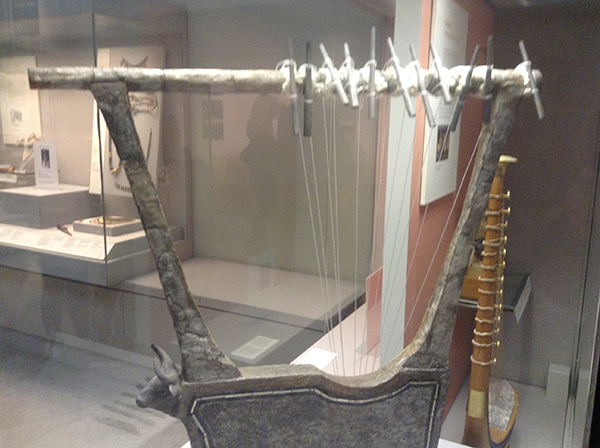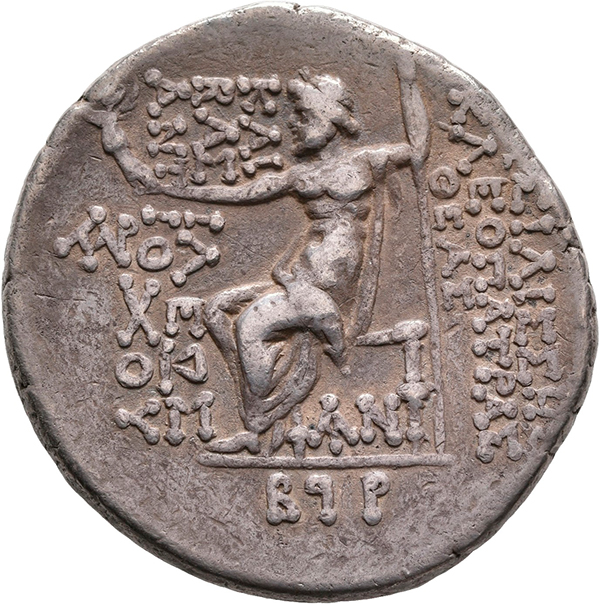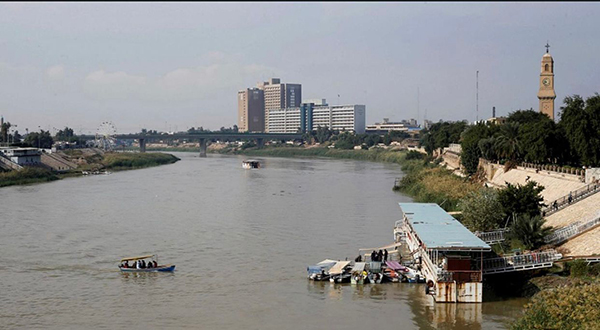Nobel prize
Nadia Murad fights for justice for her people
By Michael Seifert
I am sitting in a large kitchen with Ayad, a Yazidi who fled from Iraq to Germany, and some members of his family. Twelve of them live in an apartment in the district of Tübingen. On the wall hangs a big flag of Germany. We want to talk about Nadia Murad, a 25-year-old Yazidi, who was awarded the Nobel Peace Prize in December 2018. “When I heard that, I was really happy. It was like receiving the prize myself. And with me all the Yazidis were happy. She is very important to us, she is our voice, she is like holy,” says Ayad.
Nadia Murad also lived in Baden-Württemberg, in Stuttgart and near Heilbronn. Ayad met her, as she always came to Stuttgart in April for the Çarşema Sor Festival, for the Yazidis the beginning of the new year and the beginning of spring.
Nadia Murad was brought to Baden-Württemberg with about 1,000 women from refugee camps in northern Iraq as part of a special program in 2015 and 2016. All of these women were in the hands of IS, the so-called Islamic State, and were abused and forced into forced prostitution after most of their relatives had been killed.
A traumatic date for all the Yazidis is August 3, 2014, when more than ten thousand Yazidis were killed or abducted by members of the ISIS in the Sinjar region of northern Iraq, and tens of thousands were forced to flee. Ayad remembers that day exactly, when he fled with his family from Sinjar to the mountains and hid there for a week. Then, under the protection of Kurdish militia, they were able to march 60 kilometers to Syria on foot. From there, they were taken to a refugee camp in northern Iraqi Kurdistan, where they were protected, but like Nadia Murad had to live in terrible conditions.
Where does the hatred of IS for the Yazidis come from? Although the Kurdish-speaking Yazidis have lived in the same areas as the Muslims for centuries, probably since the 12th century, they have their own religion and are considered “infidels”. Again and again they have been discriminated before. Like Jews, Christians and Muslims, they believe in only one God. In their religion, however, there is no holy book, it is based entirely on oral tradition. “Our religion is freer, the Yazidi community is like a family, we call each other sister and brother also outside of our own family,” says Ayad.
Nadia Murad came to Germany as part of the nationwide rescue operation, which was an initiative of the Baden-Württemberg Minister President Kretschmann. “She was already determined in Iraq to tell her story. She asked me if she had to be silent in Germany. She had the feeling that she survived to tell her story, “recalled the religious scientist Michael Blume, who organized the rescue operation, on Deutschlandfunk. And she spoke publicly, to the media, to politicians, and finally to the United Nations about what had been done to her and the Yazidis. In New York, she became UN Special Envoy for the Rights of Victims of Human Trafficking. And she wrote a book entitled, “I am your voice.” Ayad shows me. He wants to read it, as soon as he can speak better German.
Ayad has the greatest respect for her commitment: “She wants to protect our people and that all the big countries help the Yazidis.” He knows how brave she is: “It can be very dangerous for her. No one knows where she lives because of the terrorist threat. “She has succeeded that countries like France, Austria, Belgium, the Netherlands, and above all Canada, are taking in Yazidis.
According to estimates, there are 500,000 Yazidis living in the world, many of whom emigrated in the past decades. Ayad doubts whether there will ever again be Yazidi towns and villages in northern Iraq, their former main area, again. Sinjar has reportedly become a ghost town. Her holy pilgrimage site Lalisch north of Mosul is accessible, Nadia Murad was there two months ago. But the fate of about 1,300 women still missing is still unknown. Nadia Murad and human rights lawyer Amal Clooney want to prosecute the IS officials at the International Criminal Court in The Hague.
######Kasten
Idee für Kasten
Aus der Rede von Nadia Murat vor der UN-Vollversammlung, ein Appell an die Staatsoberhäupter der ganzen Welt:
„Ich möchte Ihnen heute eine Botschaft von allen Überlebenden und Geflüchteten dieser Welt überbringen. Sie sind es, die Hoffnung bringen oder Leid erzeugen können. Sie sind es, die darüber entscheiden, ob ein einfaches Mädchen wie ich ihr einfaches Leben weiterleben kann. Solange in den Konfliktregionen dieser Welt kein Frieden einkehrt, sollten wir unsere Türen nicht vor Frauen und Kindern verschließen. Die Welt hat nur eine Grenze, die Grenze der Menschlichkeit. Ich flehe Sie an: Setzen Sie die Menschen an erste Stelle. Dieses Leben ist nicht nur für Sie und Ihre Familien erschaffen worden, auch wir wollen leben und wir haben ein Recht zu leben. Wenn es Sie nicht bewegt, dass Menschen geköpft, dass Frauen zur Prostitution gezwungen werden, dass Kinder vergewaltigt und Millionen von Menschen vertrieben werden, wann werden Sie dann endlich etwas bewegen?“
#####Fotos:
Nadia Murad in Washington 2018 (State Department photo/Public Domain)
Ein Plakat der Aussage von Nadia Murad vor dem UN-Sicherheitsrat am jesidischen Heiligtum in Lalisch (Michael Blume, GNU Free Documentation License)
Jesidische Geflüchtete in einem Lager in Syrien am 13.8.2014. Aus ihren Verstecken im Gebirge bei Sindschar mussten sie bei großer Hitze und Wassermangel 60 km laufen, um in Sicherheit zu kommen (Rachel Unkovic/International Rescue Committee, Creative Commons Attribution 2.0 Generic license)



